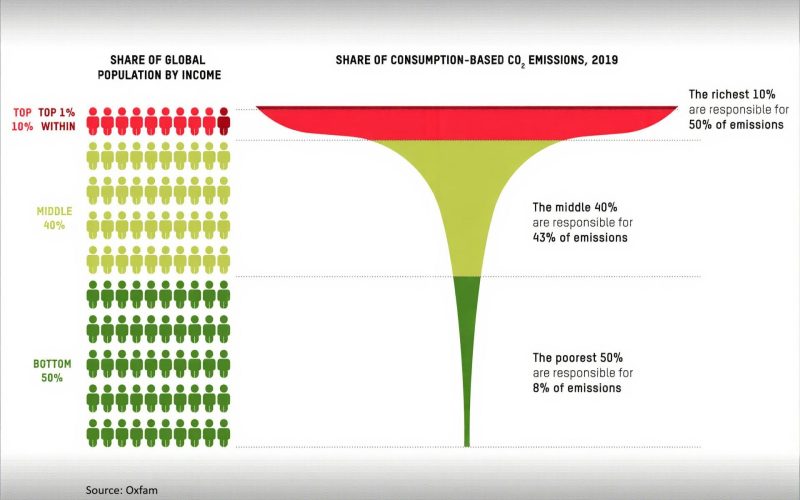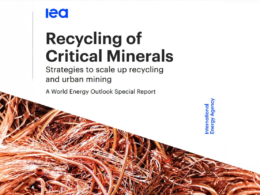As the world grapples with accelerating climate change, one glaring truth stands out: the climate crisis is deeply intertwined with inequality. The recent Oxfam report, Climate Equality: A Planet for the 99%, reveals that the wealthiest individuals and nations are not only the primary drivers of global warming but are also insulated from its devastating consequences. Meanwhile, those who contribute the least are left to bear the brunt of its impacts.
In 2019, the richest 1% of humanity were responsible for 16% of global carbon emissions—an amount equal to the combined emissions of the poorest 66% of the global population, a staggering 5 billion people. This disparity underscores a troubling reality: climate change is not just an environmental issue but a stark manifestation of economic injustice.
The lifestyles of the super-rich make their disproportionate contribution undeniable. Private jets, luxury yachts, and multiple sprawling estates create astronomical carbon footprints. In fact, the annual emissions of the wealthiest 1% are on track to exceed the safe limits needed to keep global warming below 1.5°C by a staggering 22 times by 2030. What’s more, their investments in polluting industries amplify this crisis, with billionaires’ financial portfolios responsible for up to 70% of their carbon output. The Oxfam study highlights that, on average, the investment emissions of a single billionaire are over a million times greater than the average global citizen’s total annual emissions.
While the rich continue to emit unchecked, the poorest communities—particularly in the Global South—are suffering the worst effects of climate breakdown. Entire livelihoods have been destroyed by rising sea levels, extreme weather events, and droughts. The inequality is stark: wealthier nations and individuals, despite causing the lion’s share of emissions, have the resources to rebuild after disasters, insulate themselves from rising temperatures, and even seek refuge in multiple homes. By contrast, the most vulnerable often lose everything, with little hope of recovery.
The Oxfam report paints an even more troubling picture of how inequality amplifies the climate crisis. Economic disparities between nations have widened by 25% due to global warming. Marginalised groups, including women and Indigenous Peoples, face the harshest realities of climate change. Gender inequality further compounds this crisis, as women often have less access to resources and are more exposed to climate-related risks.
Addressing this inequality is not only a moral imperative but also an urgent necessity to combat climate change. Oxfam outlines a pathway to justice, calling for wealth redistribution to reduce emissions and fund a just, green transition. A global income tax of 60% on the top 1% of earners could cut emissions significantly while raising $6.4 trillion annually to support renewable energy initiatives. Similarly, a wealth tax on billionaires could generate $1.7 trillion each year, providing critical funding for vulnerable communities in the Global South. Additionally, a windfall tax on corporate profits, particularly from fossil fuel companies, could redirect billions toward sustainable energy solutions.
Time, however, is running out. At the current pace of emissions, the world’s remaining carbon budget—the amount we can safely emit before triggering catastrophic warming—could be depleted as early as 2028. Without immediate action, we risk breaching irreversible tipping points, condemning future generations to a planet ravaged by climate collapse.
The responsibility to act lies squarely with the super-rich and high-emitting nations. Their wealth and influence give them unparalleled power to drive change, yet many continue to prioritise short-term profits over planetary survival. It’s clear that voluntary measures are no longer enough; bold policies and enforceable regulations must ensure that those most responsible for the climate crisis pay their fair share.
The fight against climate breakdown and inequality is not just about fairness—it is about survival. A just and equal transformation of our economies and societies is possible, but it requires courage, vision, and a commitment to prioritising the needs of the many over the luxuries of the few. The time to act is now.
See the full report here.
















